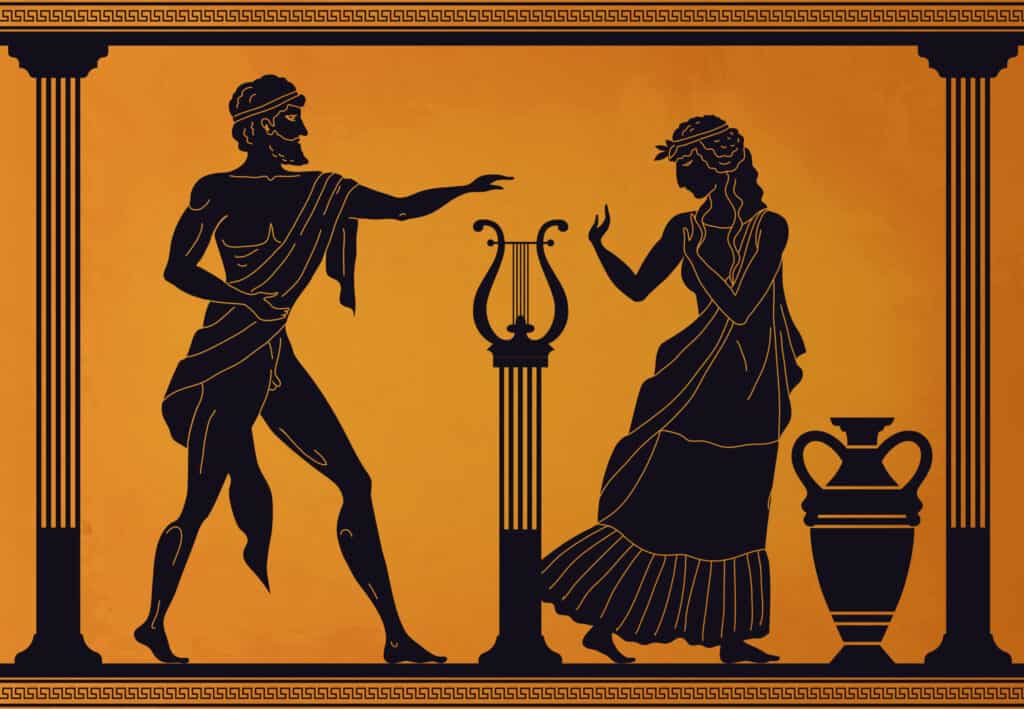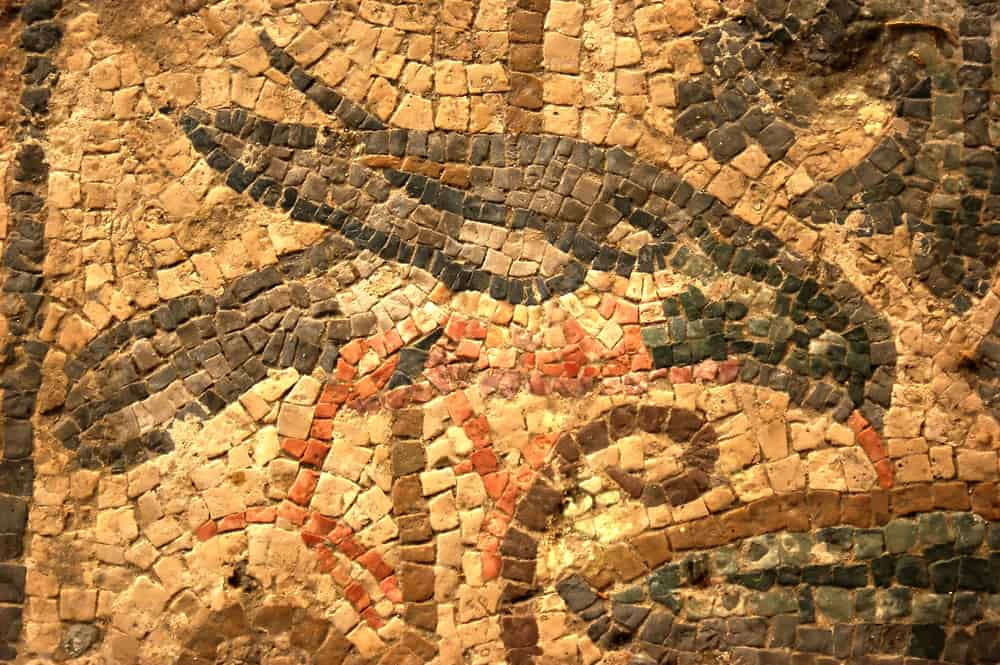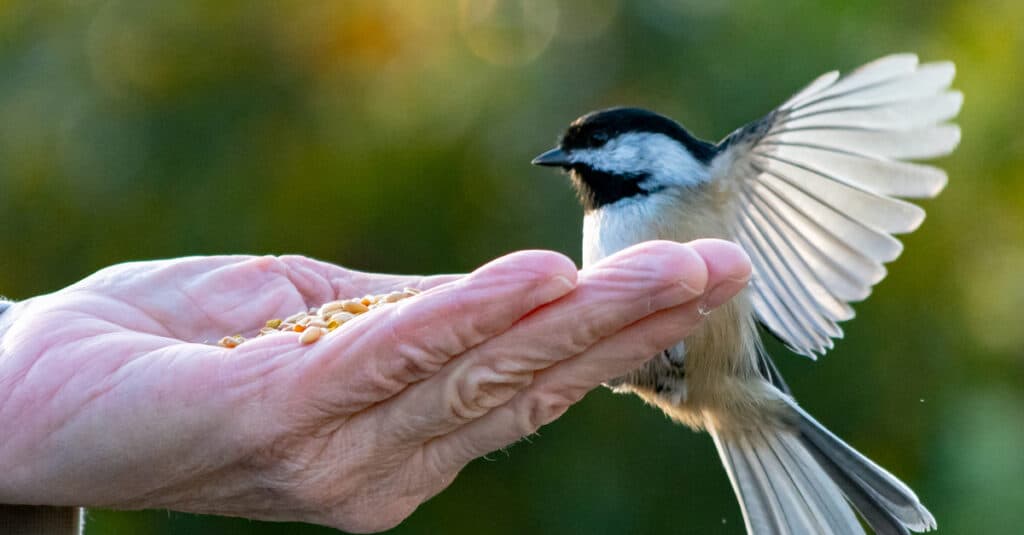Proverbial sayings are full of wisdom and often get passed down from generation to generation. But, sometimes, their meanings get lost as time wanes on. You may have heard the “bird in the hand” saying when getting counsel from a friend or family member. Or maybe someone casually threw it out there and didn’t know what it meant themselves. Discover “A bird in the hand” meaning and origin and learn how to use it conversationally.
What Kind of Saying is “A Bird in the Hand?”

The Ancient Greeks were passionate people who were often right about love and human vulnerability.
©SpicyTruffel/Shutterstock.com
“A bird in the hand” saying is an Ancient Greek proverb. Proverbs are short, expressive sayings that are often popular and repeated. They generally express facts, truth, or common sense through metaphors. You can consider them wise sayings or valuable thoughts.
Every culture has its own collection of proverbs, and the Greeks were famous for their literature and pithy sayings. The Ancient Greeks were passionate people who were often right about love and human vulnerability. Their proverbial phrases invoked truth and life lessons.
Here are some examples of Ancient Greek proverbs:
- “The tongue doesn’t have bones but bones it crushes” – Words are powerful and can hurt.
- “When the cats away, the mice will dance” – When a person of authority leaves, the subordinates will do as they please.
- “Eyes that don’t see each other quickly forget each other” – In other words, “Out of sight, out of mind.” We forget people and things when they are not visible.
Where Does the Phrase a Bird in the Hand Come From?

“A bird in the hand” saying may have originated from Aesop, the Greek storyteller, in a fable he wrote in 600 BC.
©mountainpix/Shutterstock.com
The exact origin of this saying is unknown. There are many variations of it found in different cultures and periods. Aesop, the Greek storyteller, wrote a fable in 600 BC, called “The Hawk and the Nightingale.” The short story details an encounter between a hawk swooping down to catch a nightingale. The nightingale pleads with the hawk to let him go, stating he would not be enough to satisfy the hawk’s hunger and should search for larger birds. To which the hawk replied, “I should indeed have lost my senses if I should let go food ready to my hand, for the sake of pursuing birds which are not yet even within sight.”
The Greek philosopher, Plutarch, stated in 100 AD, “He is a fool who lets slip a bird in the hand for a bird in the bush.” There are also different variations of this saying in Latin and Aramaic, dating back to the seventh century.
One of the earliest instances of the bird in the hand saying in English text was in 1382 when the Christian Bible was first translated (Wycliffe’s version). The Bible states in Ecclesiastes IX, “A living dog is better than a dead lion.”
What Does a Bird in the Hand Mean?

“ A bird in the hand is worth two in the bush” means It’s better to keep what you have, even if it is of lesser value than to go for something better and risk losing everything.
©Rino Falvo/Shutterstock.com
As the saying goes, “ A bird in the hand is worth two in the bush.” But what exactly does this mean?
It’s better to keep what you have, even if it is of lesser value than to go for something better and risk losing everything. This saying is about taking risks and whether it’s worth it.
Do you keep what you have? Or do you risk what you have in pursuit of something better, with the possibility of having nothing at all? Is a possible benefit or upgrade worth more than something tangible?
When someone tells you, “A bird in the hand is worth two in the bush,” they are stating that you should keep what you have rather than lose it for something better.
A Bird in the Hand is Worth Two in the Bush Examples
Here are some conversational examples of “A bird in the hand is worth two in the bush.”
- Jennifer enjoys her relationship with Mark but is considering pursuing Rick. To which her friend replies, “Remember, A bird in the hand is worth two in the bush.”
- “You don’t want to gamble your winnings in case you lose it all. You know, a bird in the hand and all that.”
- “I really don’t like my job. But I don’t want to risk losing it to find a better one. A bird in the hand is worth two in the bush.”
The photo featured at the top of this post is © altanaka/Shutterstock.com
Thank you for reading! Have some feedback for us? Contact the AZ Animals editorial team.






